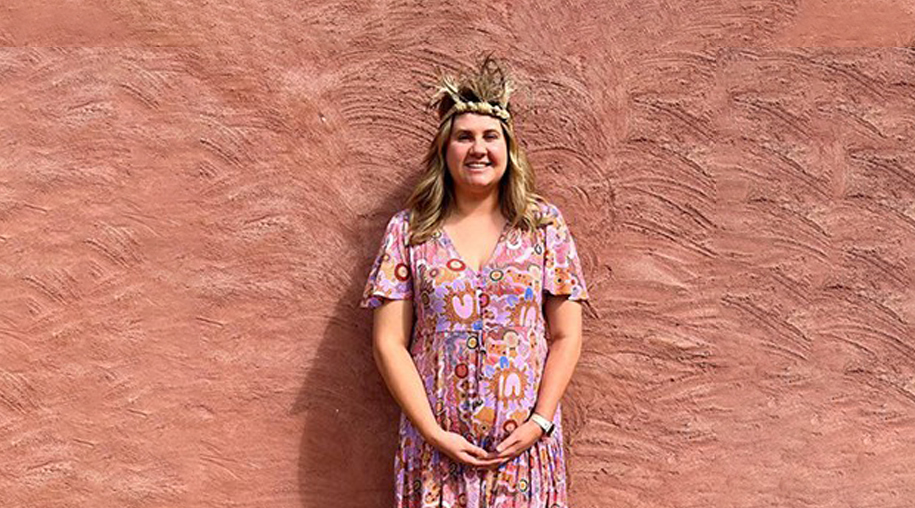This is audio part of the Yarning about Stroke collection. Listen to more stories from mob.
Courtney, a proud Wiradjuri woman living on Awabakal Country, and survivor of stroke. She yarns about the importance of cultural connection after stroke.
"And I guess that's when we talk about the importance of our kinship, connections and what that means and what that looks like. But that was really missing. And then when I went to rehab I sort of expected a little bit better of our public system. But it was a culturally unsafe place."
Transcript
Courtney: I had my stroke in those early days of the COVID lockdown. And so it was already a barrier of being isolated, right? I could only see my mom or my dad one person at a time when they would come and visit me in the hospital. And that was really tricky because, as you can imagine, having a stroke is very scary. And having a stroke when you're a healthy 25 year old and unsure of why that happened, it adds another layer to, what the hell just happened to me?
And so I was already very isolated and very scared. But that part that you're talking about, that cultural connection that was really important. And that was something that was not available to me.
The Aboriginal liaison officer, you know, I just wanted to talk to someone else when I was in hospital or somebody who could understand, you know, connect with someone and say, bub, it's going to be all right.
When you just need someone to say what you're going through is normal, you're allowed to feel these emotions, but that wasn't there for me either. And I just feel like I think the people who were on the ward and sort of, understood that I was an Aboriginal patient didn't quite actually understand what that meant. And what sort of care came with that.
And I guess that's when we talk about the importance of our kinship, connections and what that means and what that looks like. But that was really missing. And then when I went to rehab I sort of expected a little bit better of our public system. But it was a culturally unsafe place.
I obviously knew about racism present in the education system being a teacher, but I think it was just being very much on the receiving end during a very vulnerable time in my life. That was really tricky.
That cultural connection was so important to me. And yes I access my local Aboriginal medical service, but when I had to go to appointments that were outside of that, and when I couldn't go and see people through the Aboriginal Medical Service, I was scared to do that because I didn't know how I would react or who would understand and be in my corner. If there was something I went, hmmm that's not quite right. And so that was really hard. And so for me personally, I guess a big part of my recovery was about, I guess, grounding myself in country and grounding myself in my family in the ways that I could.
Even though it was COVID times. Trying to find little bits that would fill my cup. And really when I think about the things that kept me healthy and my spirit strong and kept me going was those cultural connections. Going down to the beach if someone would drive me because I couldn't drive or, just ringing an aunty up and just having a good yarn with her. Those were the things that really got me through.
Jony: Did you find you had to kind of explain yourself and your culture?
Courtney: Yeah, definitely.
Jony: And who you are and what you are and what you had to kind of essentially ... I found a lot of mob had to kind of convince nurses and medical staff that, oh I'm an Aboriginal person, I need this. This is part of my culture. Which is very distressing.
Courtney: It was hard, especially when you're a fair skinned blackfella. I know who I am and who I belong to and where I come from. I guess having to have that identity talk before you even get into I'm coming to you for help. You're the expert in whatever medical situation that we're trying to confront. That was exhausting. And that's what I mean of, you know, being scared to go and see specialists or people outside of the AMS because I knew that when I was at the AMS that I was safe there.






